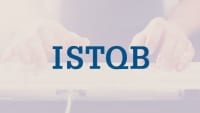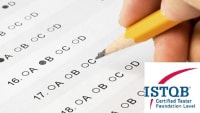Description
In this course, you will :
- Get ready to take the ISTQB® foundation level certification exam (CTFL).
- Understand the critical issues in software testing.
- Learn how to create tests that cover all of the requirements and business events.
- Boost your career by honing your testing skills.
- Learn from an industry expert in software testing and quality assurance.
Syllabus :
1. Fundamentals of Testing
- What is Testing?
- Objectives Of Testing
- Why is Testing Necessary?
- Quality Assurance and Testing
- Errors, Defects, and Failures
- Defects, Root Causes, Effects and Debugging
- Concept of Test Coverage in Software Testing
- The Seven testing Principles
- Test Conditions, Test Cases, Test Procedure and Test Suites
- The Test Process
- Test Planning and Test Monitoring and Control
- Test Analysis and Test Design
- Test Implementation and Test Execution
- Test Completion
- Test Work Products
- Traceability between the Test Basis and Test Work Products
- Factors Affect The Test Process
- The Psychology of Testing
2. Testing Throughout The Software Life Cycle
- Software Development Models
- The Waterfall Model
- Verification and Validation
- The V-Model
- Incremental - Iterative Development Models
- What is Agile?
- Agile Manifesto
- Scrum
- Test Levels : Component Testing
- Testing Levels : Integration Testing
- Testing Levels : System Testing
- Testing Levels : Acceptance Testing
- Test Types
- Test Levels vs Test Types
- Maintenance Testing
- Testing in Context
3. Static Testing
- Static Testing Basics and differences with Dynamic Testing
- More on Static Testing
- Review Process
- Roles in Formal Review
- Review Types
- Applying Review Techniques
- Success Factors for Reviews
4. Test Design Techniques
- Introduction to Equivalence Partitioning
- Advanced Equivalence Partitioning
- Boundary Value Analysis
- Decision Table Testing
- State Transition Diagram
- Use Case Testing
- White-Box Techniques : Statement Testing and Coverage
- Decision Testing and Coverage
- Experience-based Techniques: Error Guessing
- Exploratory Testing
- Checklist-based Testing
- Choosing Test Techniques
5. Test Management
- Risk And Testing
- Independent Testing
- Tasks of Test Manager and Tester
- Test Strategy and Test Approach
- Test Planning
- Entry and Exit Criteria
- Test Execution Schedule
- Test Estimation
- Test Control
- Configuration Management
- Defect Management
6. Tool Support For Testing
- Tools Support for Testing: Introduction
- Test Tools Classification: Introduction
- Test Tools Classification
- Special Considerations for Test Execution Tools
- Benefits and Risks of Test Automation
- Effective Use of Tools









